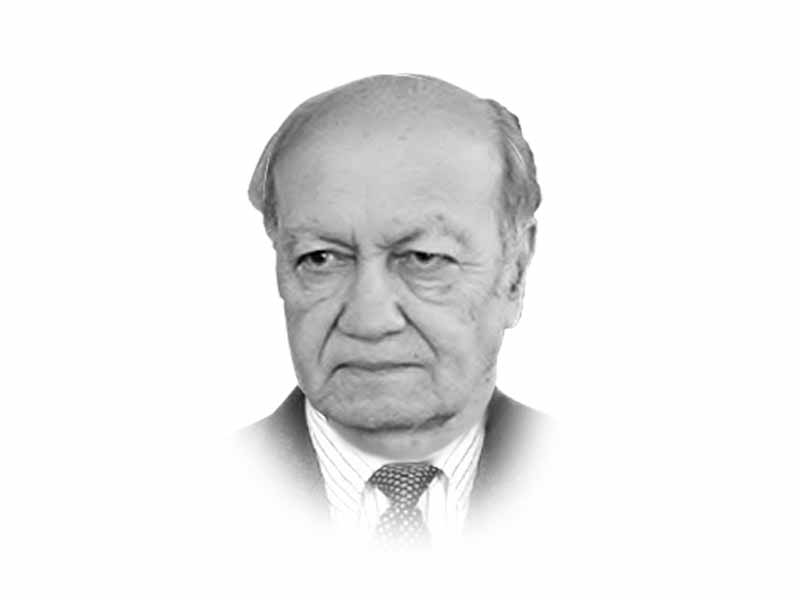
Legal niceties aside, what is Saudi Arabia, along with its allies, aiming to achieve by imposing its will on the poorest and most beleaguered country of the Middle East? It is obvious that the objective is to install a pliant regime and create ‘strategic depth’ in Yemen to counter Iran’s growing influence in the region. Saudi sensitivities are understandable as Yemen has a significant Shia population. What is generally overlooked is that Middle Eastern countries lack democratic legitimacy to protect their regimes from forces which challenge their authoritarian character, and tend to gang up. Although it is difficult to make sense of Saudi Arab’s internal politics, astute Saudi watchers have indicated that this operation was also launched to promote the image of Prince Mohammed bin Salman and to internally consolidate the regime. But this could well backfire, as military intervention is going to further compound the already complex nature of conflict, making stabilisation more difficult. It could open up new opportunities for Daesh and al Qaeda to expand their influence. But even if the Arab coalition forces, through a ground operation, are able to take control of Sana’a and establish a proxy government, it will be more of a symbolic victory. Without addressing the core issue of the marginalisation of the Houthis and other tribes, the problem will only be temporarily masked.
Lost is the fact that the Pakistan government, for the first time in its history, has committed to any country (Saudi Arabia) that it will consider a violation of that country’s territorial integrity as its own.
Pakistan’s policy of initially taking up a neutral position in the Yemen conflict has offended the Arabs who, for years, have been used to its unbridled obeisance. Veiled threat from Anwar Gargash, a junior UAE minister, through his tweet, was a manifestation of their frustration with Pakistan and Turkey. Tweet that “now the Arab countries should take care of their own defence”, says it all. It betrays the fundamental weakness of Arab rulers, depending on foreign countries — both Western and Muslim — in not only using their armed forces for protecting their regimes but also for pursuing their foreign policy and strategic aims. What is it that the joint defence force of Arab countries is unable to perform is now expected from Pakistan in the Yemen internecine war? Moreover, would it not be fair to ask if Pakistan was taken into confidence before launching the military operation in Yemen? And if the answer is in the negative, then what justification is there to expect that we were going to be a party to it.
Purely from a military perspective, any professional army could destroy a band of fighters in a conventional battle, but the Houthis are not going to engage in it unless they have clear superiority in numbers and are certain of victory. Instead, they will employ guerilla tactics of ambush, deception, etc. The memories of Pakistan’s engagement in Somalia in June 1993, when several of our soldiers lost their lives, should have been instructive to assess the effectiveness and dangers inherent in the involvement in civil war situations.
More importantly, the Yemen conflict cannot be viewed in isolation. It has to be considered as part of a larger and deeper change challenging the status quo taking place in the Middle East. The internal dynamics is altering the balance of power between the old and the emerging political forces. A genuine feeling of self-determination is evident and is taking different shapes in the form of street protests or tribal uprisings. These aspirations can be suppressed for a while but will eventually prevail. After all, the Arab world, economically well-integrated with the rest of the world, cannot insulate itself from international political norms and ignore the voices of their own people. It is sad to witness, even from my own country’s murky standards, as to why the Arab world is holding out to the past and not moving with rest of the world or sensing the aspirations of its people. Oil wealth is a transitory phenomenon which, in any case, is likely to decrease as oil is discovered in other parts of the world and alternative sources of energy develop.
Arab countries’ current response to Pakistan’s decision of non-involvement reflects how oblivious they are to our multiple security challenges. Or are they deliberately playing down to put pressure on Pakistan?
Pakistan’s decision of playing a conciliatory role instead of being party to Saudi and Arab wishes was prudent and courageous. If it has been misunderstood or misinterpreted, it is unfortunate. If the Arab countries do not take Pakistan’s and Turkey’s advice of seeking a political solution in the right spirit, then it is only a matter of time they will find out who will be paying the price for it.
Published in The Express Tribune, April 15th, 2015.
Like Opinion & Editorial on Facebook, follow @ETOpEd on Twitter to receive all updates on all our daily pieces.




1716998435-0/Ryan-Reynolds-Hugh-Jackman-(3)1716998435-0-165x106.webp)


1729685382-0/Untitled-design-(57)1729685382-0-270x192.webp)


1730706072-0/Copy-of-Untitled-(2)1730706072-0-270x192.webp)
COMMENTS (12)
Comments are moderated and generally will be posted if they are on-topic and not abusive.
For more information, please see our Comments FAQ